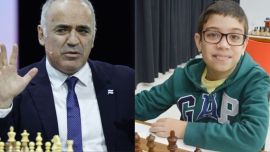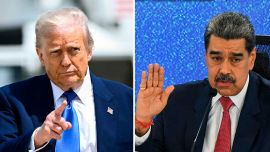Winter holidays seem a reality beyond the classroom, enhanced by the massive distraction of the Tokyo Olympics and a cold snap, yet neither politics nor the economy are in total hibernation. Hard to take the former seriously if the celebration of presidential birthday parties (long after the event) is elevated into a prime issue, while it is still very early days in an election campaign which only began officially last weekend but some sparks are already flying. The tensions are perhaps more visible in opposition ranks yet are not absent in a government intent on repeating the successful unity of 2019 but forced into a Cabinet reshuffle by ministerial candidacies. On the economic front business might be on hold as the private sector awaits the midterm results in order to clarify trends but for the public sector, maintaining the crucial pre-electoral market calm may not be as simple as placing the dollar in a winter freezer.
Nothing seems more contrary to the democratic aims of primaries (nor more boring, for that matter) than submitting single lists defined by party helms to the electorate for rubber stamping and yet many in an opposition ironically rebranded as Juntos are already regretting that they have not emulated Frente de Todos in going down that authoritarian road, handing the government a “divide and rule” scenario on a plate. The rift is not easily healed between the pre-emptive bid of City Mayor Horacio Rodríguez Larreta to clinch his 2023 presidential candidacy by imposing a monopoly of the top candidacies and the disruptive emergence of the outsider Facundo Manes in the Radical list. Not that Manes would automatically displace Rodríguez Larreta as the 2023 opposition standard-bearer should he prevail in the September primary, as he might fondly imagine – other far more experienced Radical leaders such as party chairman Alfredo Cornejo and Jujuy Governor Gerardo Morales would see him as a stalking-horse for their own ambitions.
The government has made a smoother start to the campaign by making their electoral unity the supreme priority even over governance. The replacement of Daniel Arroyo as Social Development minister is a good example – appointing Hurlingham Mayor Juan Zabaleta was a masterstroke in terms of factional juggling since it simultaneously dismantled the new minister’s defiance of the militant La Cámpora youth grouping in his own district, while reviving presidential prestige within the Cabinet by introducing one of the closest allies of President Alberto Fernández after a steady erosion of his personal nominees in the last 20 months. Whether this best addresses Argentina’s acute social problems is considered entirely secondary. But it will be harder to square the circle should the Defence Ministry be filled by vacating the Security Ministry with the reluctant exit of Agustín Rossi for a Santa Fe senatorial candidacy – since the Frente de Todos spectrum on the crime-fighting front ranges from permissive extremists to the theatrical hardliner Buenos Aires Province Security Minister Sergio Berni, it would be almost impossible for the new ministerial appointment to keep everybody happy over this extremely sensitive issue ranking high as a major public opinion concern.
Political unity is one of the two key pillars for electoral success in Peronist eyes – the other is lavish public spending. Here the Alberto Fernández administration has limited options if it does not want to see the fiscal deficit shooting well over five percent of Gross Domestic Product. Even without straying beyond these limits the Central Bank is printing money at a furious pace (well over a quarter of a trillion pesos in this month alone), thus stoking up obvious risks of inflation – even if this might not kick in before November with the usual monetary lag. Under Martín Guzmán the Economy Ministry has replaced foreign debt with what looks dangerously like a Ponzi scheme of refinancing peso bonds at escalating interest rates – this stands to keep public spending funded, not least by crowding out the private sector, but a collapse of confidence in volatile markets might just cause this plug to be pulled even before the elections with drastic consequences. Meanwhile anything resembling an economic plan will have to await the elections and will depend on their results.
But all in all, early days with the campaign only just starting (without the coronavirus pandemic ending) – anybody who would rather make the most of a fortnight of winter holidays and Tokyo Olympics would be entirely within their rights.


















Comments